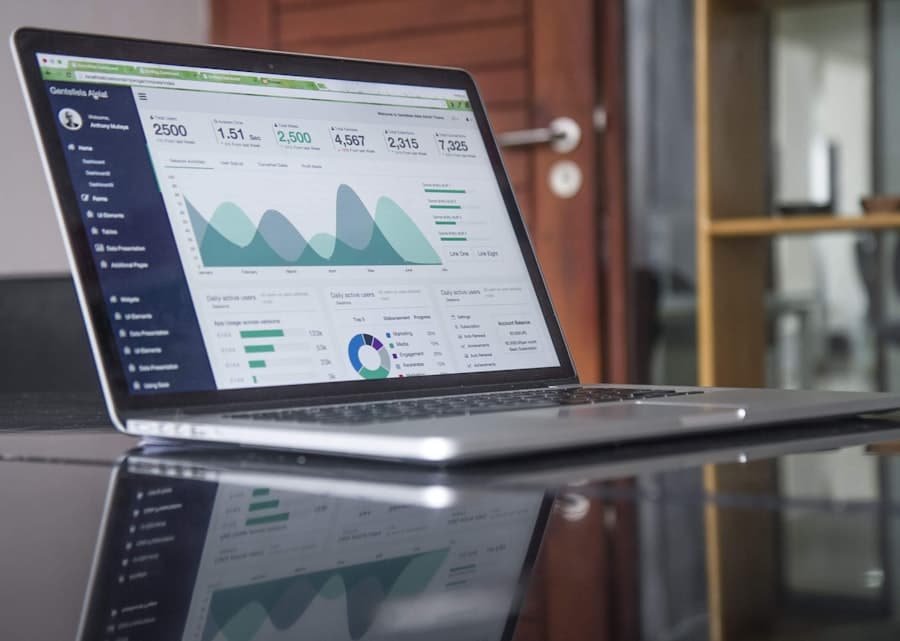Healthcare analytics is an evolving field that harnesses the power of data to improve patient outcomes, streamline operations, and enhance decision-making processes within healthcare systems. As the volume of healthcare data continues to grow exponentially, driven by electronic health records (EHRs), wearable devices, and various health applications, the need for sophisticated analytical tools has become paramount. Healthcare analytics encompasses a range of techniques, from descriptive analytics that provide insights into past performance to predictive analytics that forecast future trends and prescriptive analytics that recommend actions based on data-driven insights.
The integration of analytics into healthcare is not merely a technological advancement; it represents a paradigm shift in how healthcare providers approach patient care and operational efficiency. By leveraging data analytics, healthcare organisations can identify patterns, uncover hidden insights, and make informed decisions that ultimately lead to improved health outcomes. This article delves into the significance of data in healthcare, explores the various applications of healthcare analytics, and examines the benefits and challenges associated with its implementation.
Summary
- Healthcare analytics involves the use of data analysis and insights to improve healthcare outcomes and decision-making.
- Data plays a crucial role in healthcare, from patient records to medical research, and analytics helps to make sense of this vast amount of information.
- Healthcare analytics is used to improve patient care, streamline operations, and reduce costs within healthcare organisations.
- The benefits of healthcare analytics include improved patient outcomes, better resource allocation, and more efficient healthcare delivery.
- Challenges in implementing healthcare analytics include data privacy concerns, interoperability issues, and the need for skilled professionals to interpret and act on the data.
The Importance of Data in Healthcare
Data serves as the backbone of modern healthcare systems, providing the necessary information to inform clinical decisions and operational strategies. The importance of data in healthcare cannot be overstated; it enables providers to track patient outcomes, monitor disease trends, and assess the effectiveness of treatments. For instance, hospitals can analyse readmission rates to identify areas for improvement in patient care protocols.
Furthermore, data collected from various sources, including clinical trials, patient surveys, and population health studies, can be synthesised to create a comprehensive view of health trends within specific demographics. Moreover, the advent of big data has transformed the landscape of healthcare analytics. With vast amounts of information generated daily, healthcare organisations are now equipped to conduct more sophisticated analyses than ever before.
This wealth of data allows for a deeper understanding of patient behaviours and preferences, which can lead to more personalised care plans. For example, by analysing data from wearable devices, healthcare providers can monitor patients’ physical activity levels and adjust treatment plans accordingly. This shift towards data-driven decision-making is essential for enhancing the quality of care and ensuring that resources are allocated efficiently.
How Healthcare Analytics is Used

Healthcare analytics is employed across various domains within the healthcare sector, each with its unique applications and benefits. One prominent use case is in clinical decision support systems (CDSS), which leverage data analytics to assist healthcare professionals in making informed decisions at the point of care. By analysing patient data in real-time, CDSS can provide evidence-based recommendations for diagnosis and treatment options.
For instance, if a physician is treating a patient with diabetes, the system may analyse the patient’s historical data and suggest optimal medication adjustments based on similar cases. Another significant application of healthcare analytics is in population health management. By aggregating and analysing data from diverse sources, such as EHRs and public health databases, healthcare organisations can identify at-risk populations and implement targeted interventions.
For example, a health system may analyse data to identify a rise in hypertension among specific demographic groups. Armed with this information, they can launch community outreach programmes aimed at educating these populations about lifestyle changes and preventive measures. This proactive approach not only improves individual health outcomes but also reduces overall healthcare costs by preventing chronic diseases from escalating.
Benefits of Healthcare Analytics
The benefits of healthcare analytics are manifold, impacting both patient care and organisational efficiency. One of the most significant advantages is the ability to enhance patient outcomes through personalised medicine. By analysing genetic information alongside clinical data, healthcare providers can tailor treatments to individual patients’ needs.
For instance, oncology has seen a shift towards precision medicine, where treatments are customised based on the genetic profile of tumours. This targeted approach has been shown to improve response rates and reduce adverse effects compared to traditional one-size-fits-all therapies. In addition to improving patient care, healthcare analytics also contributes to operational efficiencies within healthcare organisations.
By analysing workflow processes and resource utilisation, organisations can identify bottlenecks and streamline operations. For example, predictive analytics can forecast patient admission rates based on historical data, allowing hospitals to optimise staffing levels and reduce wait times. Furthermore, analytics can aid in financial management by identifying cost-saving opportunities through better inventory management or reducing unnecessary tests and procedures.
The cumulative effect of these efficiencies not only enhances patient satisfaction but also bolsters the financial sustainability of healthcare institutions.
Challenges in Implementing Healthcare Analytics
Despite its numerous advantages, implementing healthcare analytics is fraught with challenges that organisations must navigate carefully. One primary obstacle is the issue of data interoperability. Healthcare systems often utilise disparate EHR platforms that do not communicate effectively with one another.
This lack of standardisation can hinder the seamless exchange of information necessary for comprehensive analyses. For instance, if a patient’s records are scattered across multiple systems due to different providers using incompatible software, it becomes challenging to obtain a holistic view of their health history. Another significant challenge lies in ensuring data privacy and security.
The sensitive nature of health information necessitates stringent measures to protect patient data from breaches or unauthorised access. Healthcare organisations must comply with regulations such as the General Data Protection Regulation (GDPR) in Europe or the Health Insurance Portability and Accountability Act (HIPAA) in the United States. Balancing the need for data accessibility with robust security measures requires careful planning and investment in technology solutions that safeguard patient information while enabling effective analytics.
Future Trends in Healthcare Analytics

The Rise of Artificial Intelligence and Machine Learning
One notable trend is the increasing use of artificial intelligence (AI) and machine learning (ML) algorithms to enhance analytical capabilities. These technologies can process vast amounts of data at unprecedented speeds, uncovering patterns that may not be immediately apparent to human analysts.
Predictive Models and Timely Interventions
For example, AI-driven predictive models can analyse patient data to identify those at risk for conditions such as sepsis or heart failure long before symptoms manifest, allowing for timely interventions.
Real-Time Analytics and the Internet of Things
Another trend is the growing emphasis on real-time analytics facilitated by the Internet of Things (IoT). With the proliferation of connected devices in healthcare—ranging from smartwatches that monitor heart rates to remote patient monitoring systems—healthcare providers can access real-time data on patients’ health status. This immediacy allows for more agile decision-making and timely responses to changes in patients’ conditions. As these technologies become more integrated into clinical workflows, they will further enhance the ability to deliver personalised care and improve overall health outcomes.
Ethical Considerations in Healthcare Analytics
The integration of analytics into healthcare raises several ethical considerations that must be addressed to ensure responsible use of data. One critical issue is informed consent; patients must be made aware of how their data will be used and have the opportunity to opt out if they choose. Transparency in data usage fosters trust between patients and healthcare providers, which is essential for successful implementation of analytics initiatives.
Additionally, there is a risk of bias in algorithms used for predictive analytics. If historical data reflects systemic inequalities or biases—such as racial or socioeconomic disparities—these biases may be perpetuated in predictive models. For instance, if an algorithm trained on biased data suggests treatment options that favour certain demographics over others, it could exacerbate existing health disparities rather than mitigate them.
Therefore, it is imperative for healthcare organisations to regularly audit their algorithms for fairness and accuracy while ensuring diverse representation in training datasets.
The Impact of Healthcare Analytics on the Future of Healthcare
The impact of healthcare analytics on the future of healthcare is profound and far-reaching. As organisations increasingly embrace data-driven approaches to patient care and operational management, they stand poised to revolutionise how healthcare is delivered. The ability to harness vast amounts of data for actionable insights not only enhances individual patient outcomes but also contributes to broader public health initiatives aimed at improving population health.
However, as we move forward into this new era of healthcare analytics, it is crucial to navigate the associated challenges thoughtfully. Ensuring interoperability between systems, safeguarding patient privacy, addressing ethical concerns, and mitigating biases will be essential for realising the full potential of analytics in healthcare. By prioritising these considerations alongside technological advancements, we can create a future where healthcare analytics serves as a powerful tool for improving health outcomes while fostering equity and trust within our healthcare systems.
Healthcare analytics is a crucial tool in the modern healthcare industry, allowing professionals to make informed decisions based on data-driven insights. In a related article on Technologies Shaping and Changing the World in 2020, the impact of cutting-edge technologies on various sectors, including healthcare, is explored. This article highlights how advancements in technology are revolutionising the way healthcare analytics is conducted, leading to improved patient outcomes and more efficient healthcare delivery. By leveraging these technologies, healthcare professionals can harness the power of data to drive innovation and improve the quality of care provided to patients.
